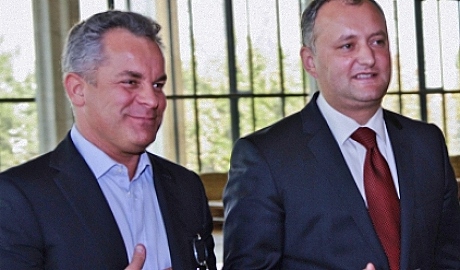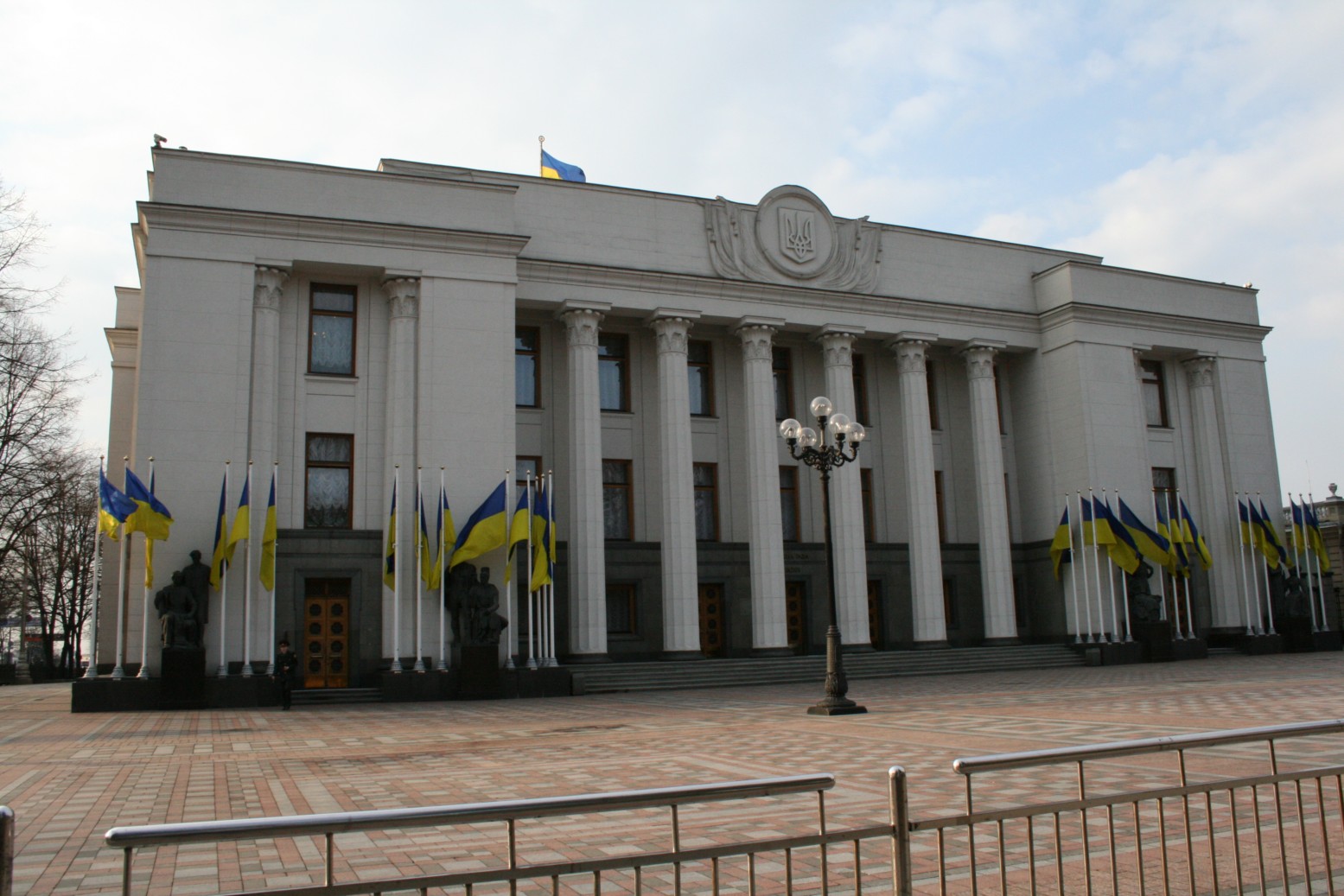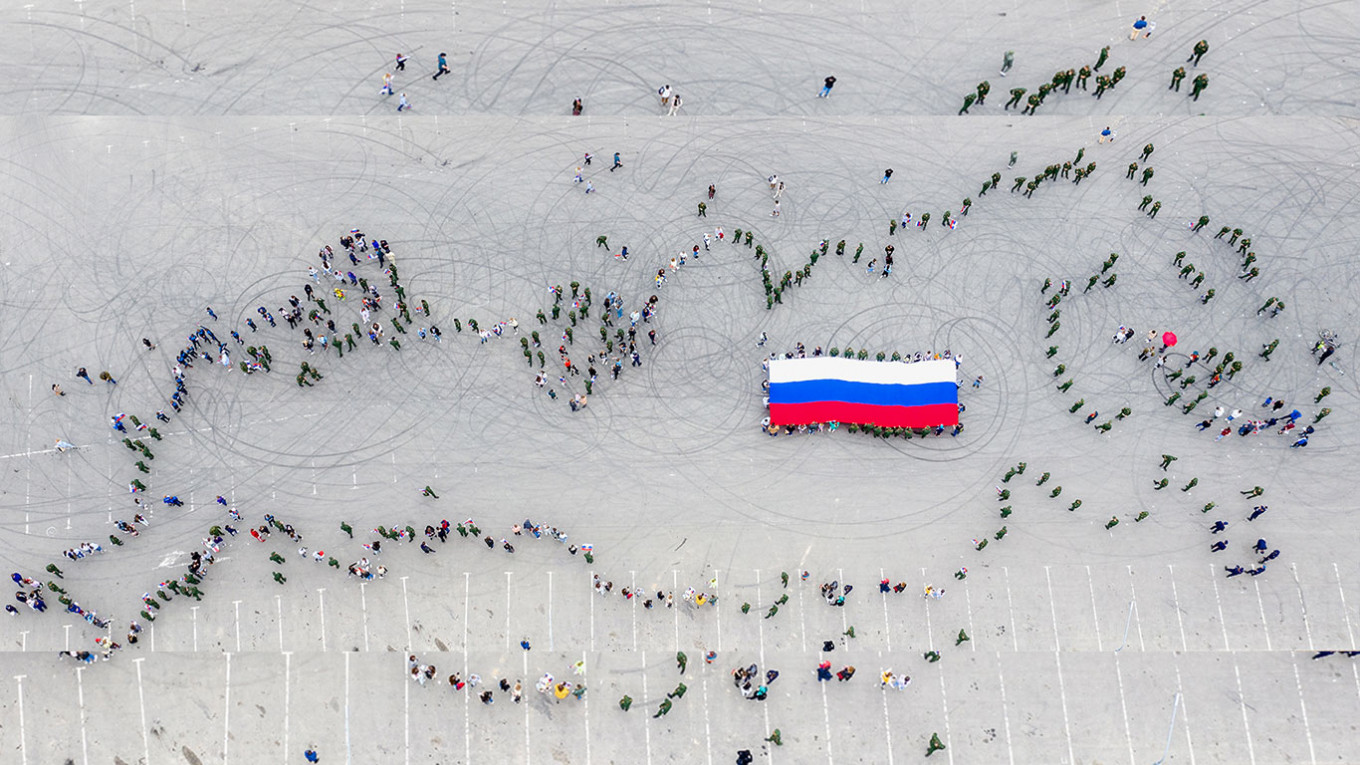
A Year in Review: Oligarchic Power Consolidation Defines Moldova’s Politics in 2017
A Year in Review: Oligarchic Power Consolidation Defines Moldova’s Politics in 2017
Moldova witnessed clear signs of democratic backsliding in 2017, along with window-dressing reforms and paying lip service to its international and domestic commitments. Against this backdrop, the country did experience some consumption-based economic growth, which the government has identified as stability, although the opposition views it as stagnation at best. The days of Moldova being a success story of European integration are long gone. Yet, it is the billion dollars siphoned off from the banking system back in 2014 that unveiled the true nature of Moldova’s dysfunctional state. The acrimonious unraveling of the ruling coalition, which followed the banking scandal, tore down the democratic façade the pro-European ruling parties have been projecting since coming to power in 2009.
Ironically, it is the Democratic Party (PDM) that has been at the center of Moldova’s recent democratic backsliding, after benefiting the most from the demise of its main rival, the Liberal Democratic Party (PLDM). The latter ended up a scapegoat for the billion-dollar heist. PDM and its leader, oligarch Vlad Plahotniuc, has been instrumental in defusing the anti-government protests that swept the country in 2015 by having the Constitutional Court reintroduce direct presidential elections (see EDM, March 8, 2016). The subsequent presidential campaign distracted the public and the opposition for most of 2016, paving the way for Vlad Plahotniuc to embark on a power consolidation offensive that transformed PDM from a once junior coalition partner into a dominant political force. Plahotniuc meticulously cemented his power throughout 2017, despite lacking popular legitimacy and being widely reviled by the public (Moldova.org, December 14, 2017).
The Democratic Party only garnered 15.8 percent of the vote in the 2014 parliamentary elections, resulting in 19 seats in the 101-person legislature. Yet, thanks to Plahotniuc’s immense wealth and vast influence over law enforcement, since the election he managed to turn a majority of former Liberal Democrat and Communist legislators to his side, building a comfortable majority of about 60 seats. Nonetheless, despite having full control over the government and about 75 percent of the media market, in early 2017 PDM still polled below the parliamentary threshold of 6 percent (IRI.org, March 2017). To mitigate the risk of losing power, in March Plahotniuc introduced a mixed electoral system (half of the seats assigned proportionally and half under a “first past the post” arrangement). Disregarding democracy concerns and condemnations from the Council of Europe, the Organization for Security and Cooperation in Europe (OSCE), the European Union and the United States, the new Moldovan electoral system was approved on July 20, thanks, in part, to support from the Socialist faction in parliament (Venice.coe.int, June 19, 2017; Eeas.europa.eu, July 21, 2017; Md.usembassy.gov, July 24, 2017).
The new law is likely to produce a highly unrepresentative parliament, further entrenching politicians’ clientelistic behaviors and deepening state capture. The new electoral system benefits the incumbent Democratic Party but also large established parties, namely the Socialists. At the same time, it undermines the electoral chances of new political parties, such as the Action and Solidarity Party (PAS) and Dignity and Truth Party (PDA) (see EDM, July 25, 2017). Opposition parties as well as civil society groups protested against the voting changes, but to no avail. The government retaliated against civil society by promoting a bill similar to the Russian “foreign agent” legislation aimed at curbing public dissent (Open Democracy, August 22). Feeling emboldened, Plahotniuc’s regime also stepped up its harassment of opposition activists in the regions and went after local mayors who had not yet defected to the Democratic Party.
Meanwhile, Plahotniuc has been instrumental in exploiting the geopolitical tensions across Europe’s East. In order to convince the West to turn a blind eye to his power grab, Plahotniuc went to great lengths to present himself as a victim of Russian meddling in Moldova. The Chisinau government even expelled five Russian diplomats, declared Russian Deputy Prime Minister Dmitri Rogozin persona non grata and banned Russian propaganda in Moldova, with little to no reaction from Moscow. This can be partially explained by the fact that, at the same time, Plahotniuc helped the pro-Russia candidate Igor Dodon win the presidency in Moldova. Plahotniuc made sure that Moldova continues to buy electricity from the Russian state-owned, Transnistrian-based power plant, despite Ukraine having won the supply contract in an international bidding contest. Moreover, Plahotniuc owns the rebroadcasting rights for the premier Russian propaganda tool, the first federal TV channel Perviy Kanal, while the second Russian federal channel, NTV, is rebroadcast in Moldova by an associate of Dodon’s.
Thus, on the one hand, Plahotniuc and his army of lobbyists routinely ask the West to help Moldova against an aggressive Russia (Wall Street Journal, December 27, 2017), while, on the other hand, Dodon complains to Vladimir Putin about Western meddling in the small country (TASS, January 4, 2018). Meanwhile, Plahotniuc and Dodon have cooperated on major decisions, such as the change of the electoral system as well as dividing up ambassadorial posts among their own supporters. And despite Dodon’s repeated suspension from office by the government last year, the two men have thus far been able to avoid any meaningful political confrontation—aside from mutual theatrical rebukes in the media—prompting numerous accusations of a Plahotniuc-Dodon political cartel (Infotag.md, November 9, 2017).
This puts the genuinely pro-EU and anti-oligarchic opposition parties in a difficult political position. Realizing their weaknesses, the Action and Solidarity Party and Dignity and the Truth Party are pooling their scarce resources, counting on the synergistic effect of a future electoral bloc (Unimedia.info, October 16, 2017). Yet, the two are still struggling to outmaneuver Plahotniuc and Dodon. In particular, the opposition seeks to change the public narrative away from geopolitical debates (whether Moldova should be pro or against Russia or the EU) and toward a more governance-oriented discussion regarding state capture, corruption, democracy and rule of law. This is likely to be the main challenge for the opposition going into the November 2018 general elections.
Next year’s parliamentary campaign could become a turning point for the country. Yet, many disillusioned Moldovans see real change as almost too good to ever materialize. This makes apathy all too common, which only works in favor of the ruling elite, content with obfuscating popular scrutiny and operating with general impunity. The past year took Moldovans back at least a decade in terms of media freedom, rule of law and political pluralism. If these trends continue, Moldova may soon come to more closely resemble Belarus and Azerbaijan and less the European Union that so many Moldovans aspire to join.


